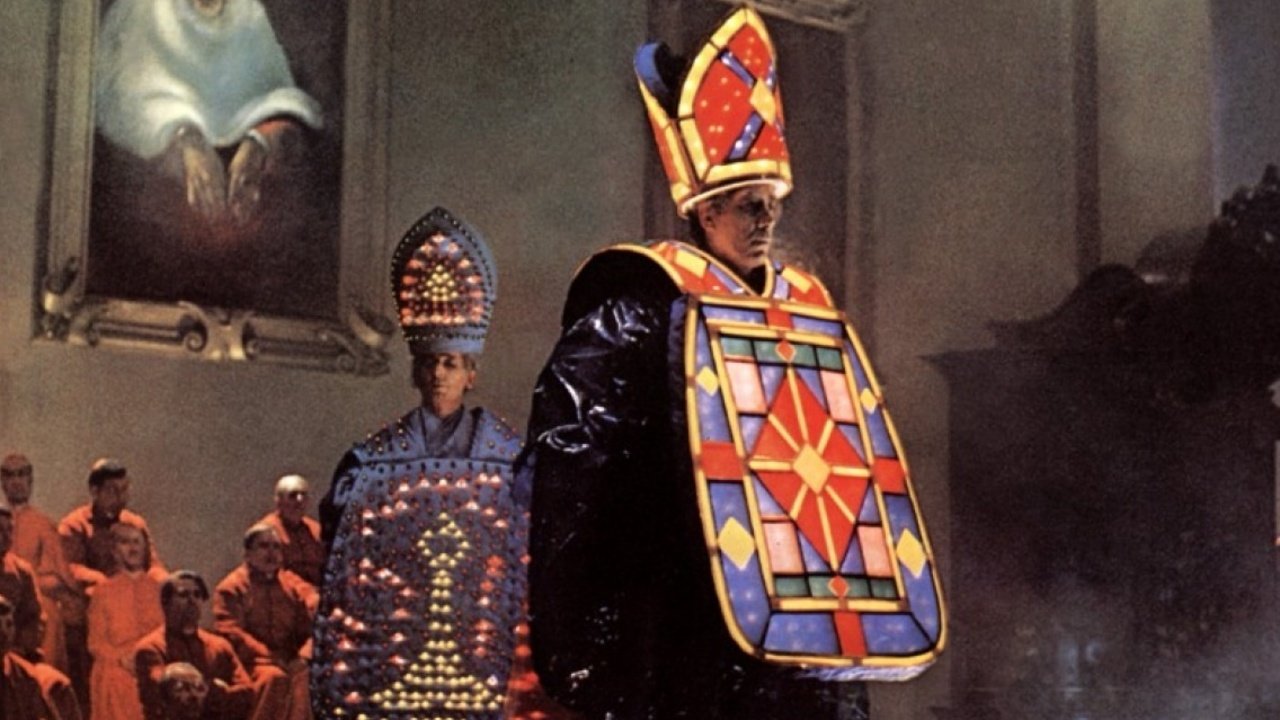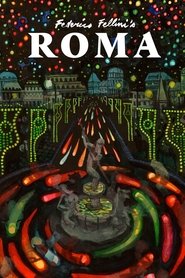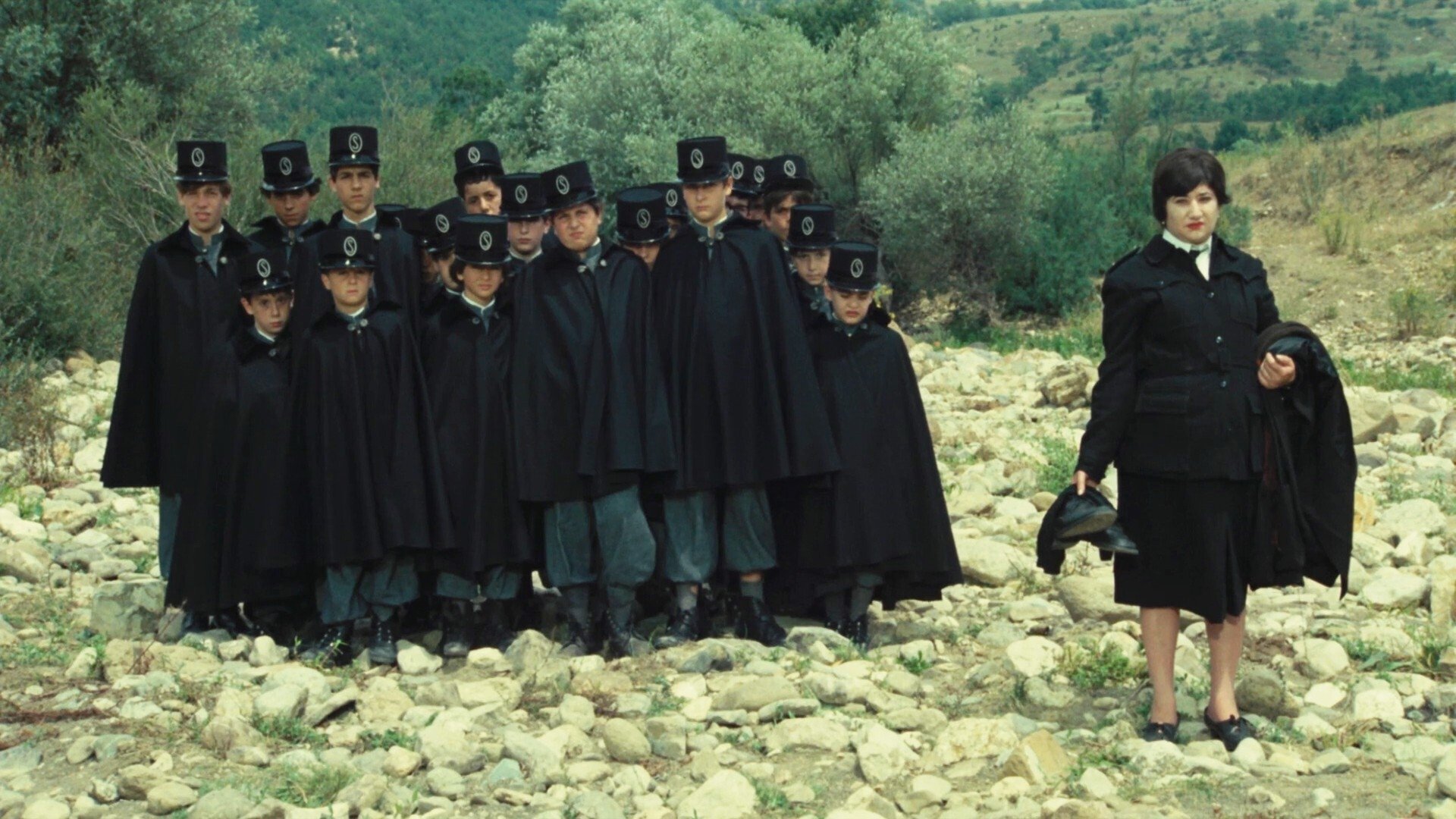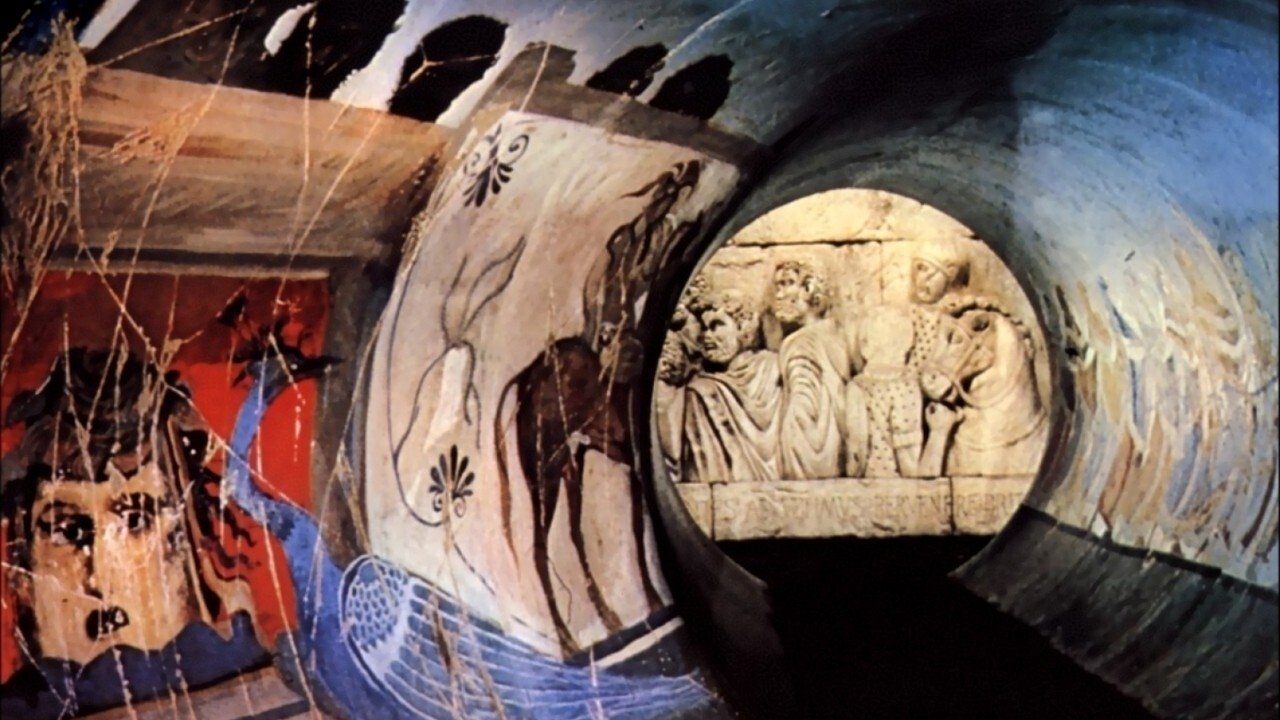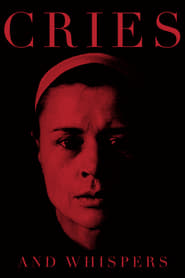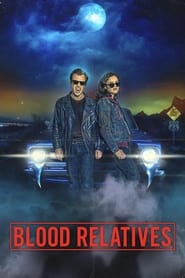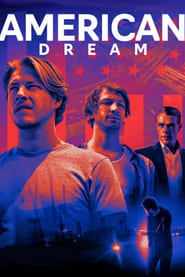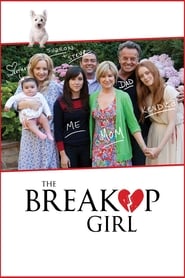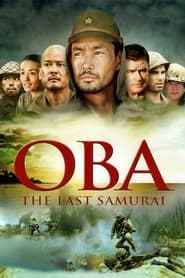
Video Sources 0 Views
Synopsis
Watch: Roma 1972 123movies, Full Movie Online – A virtually plotless, gaudy, impressionistic portrait of Rome through the eyes of one of its most famous citizens, blending autobiography (a reconstruction of Fellini’s own arrival in Rome during the Mussolini years; a trip to a brothel and a music-hall) with scenes from present-day Roman life (a massive traffic jam on the autostrada; a raucous journey through Rome after dark; following an archaeological team through the site of the Rome subways; an unforgettable ecclesiastical fashion show)..
Plot: A virtually plotless, gaudy, impressionistic portrait of Rome through the eyes of one of its most famous citizens.
Smart Tags: #brothel #panties #female_nudity #orgy #nudity #catholic_church #italy #disillusionment #reference_to_julius_caesar #reference_to_crossing_the_rubicon #fascism #fascist_italy #fascist_youth #city_name_in_title #one_word_title #title_appears_in_writing #roadkill #reference_to_marcel_proust #stage_performance #audience_disrupts_show #voice_over_inner_thoughts
Find Alternative – Roma 1972, Streaming Links:
123movies | FMmovies | Putlocker | GoMovies | SolarMovie | Soap2day
Ratings:
Reviews:
There’s the myth… there’s the reality… and in-between, there’s Fellini’s “Roma” …
Whether for literature, theater or any art of storytelling, there can’t be a plot without characters to drive it. Yet characters don’t imply a specific plot and this might be the area where theater slightly surpasses literature, as an art of ‘presence’ and ‘personalities’ mirroring our condition. More than anything, it’s a show, an invitation for eyes, for ears, for feelings. And emotions can do without plots.And here we have Fellini draining his talent from the Antic Roman-Greek tragicomedy, Commedia del’ Arte, Opera and maybe more than anything, from his Italian roots so devoted to fun and entertainment. More than any other director, Fellini understood the virtue of Cinema as a new form of theater, a show that doesn’t rely on plots or screen writing techniques, he shoots first and we ask the question later. And what a show! Fellini will forever be admired and never equaled, thanks to his unique talent to inhabit his films with unforgettable galleries of characters: eccentric, larger-than-life, decadent, greedy, gluttonous, sensual, ugly, outcast, colorful faces with anonymous names and universal and timeless appeals. These people feel real because they FEEL. And we’re so hypnotized by the images that we forget to care about a plot.
My repetition of the word ‘plot’ is only an anticipation of some rational comments on Fellini’s “Roma” or, “Fellini’s Roma”, I must say. Yes, the film doesn’t have a plot, even to those who set their minds for a surrealist tour orchestrated by the ultimate cinematic ringleader, Il Maestro Fellini. Even “8½” chronicled the very process of film-making from the author’s boiling mind, even the previous “Fellini’s Satyricon” was a take on a myth that had a story to tell, no matter how disjointed it felt. Even the nostalgic vignettes of “Amarcord” made a coherent ensemble, but “Fellini’s Roma” has no focus whatsoever.
But does it need one when the scope is so large, when Rome is the main protagonist? Rome… such a myth of a city that it transcends all the periods, visions and artistic possibilities. The film is constantly inhabited by Rome’s aura from Fellini’s perspective, hence the title. For “Satyricon”, it was a legal necessity to distinguish from two films with the same title, to establish Fellini’s independence from the original myth. “Roma” similarly establishes Fellini’s independence, except that this time, no other vision of Rome could ever compete with Fellini’s or approach the town with the same masterful audacity.
Now, why a film about “Rome”? My guess is that it’s one of the few privileged cities whose name evoke fascinating contradictions. “Rome is the city of illusions. Not only by chance you have here the church, the government, the cinema. They each produce illusions.” This is Gore Vidal speaking in a memorable cameo and it’s probably the closest rational conclusion that can come out of this mesmerizing mess. And “illusion” is the key word, whether it’s the illusion of church that ignited the faith of generation of Italians without abjuring them from that lust for life and voluptuous bodies so rooted in the Italian lifestyle, for politics that have plunged post-War Italy into the darkness of fascism and yes, even Cinema doesn’t escape criticism.
Behind Fellini’s eye, Rome oscillates between dazzling magnificence and nightmarish decadence. Fellini appears twice, as a young idealistic man who discovers the town, eats some spaghetti with the population, goes to the music-hall or visits a brothel, and the older real-life Fellini discussing with the new generation of Romans on how to make an accurate portrayal of the city. And it’s ironic how nothing changed much between these times, “O Tempora! O Mores”, yet Mussolini’s Italy was as noisy, lusty and turbulent as in 1972, and ironically, “Roma”‘s self-referential aspect illustrates the fact that both embellishment and derision rely on caricatures, the very illusions Fellini admits in his own filmmaking process.
And illusion contributes to the film’s most enigmatic moments: a parade of prostitutes tempting their clients, with sensual bodies to better hide the lucid tiredness in their faces, the scene followed by a sort of ecclesiastic fashion contest. Through the intriguing parallel, the iconoclast Maestro doesn’t attack church but the myth of virtue that ignores the real sacred Trinity outside the Vatican border: life, love and lust. His fantasy vision works like a missing link between the eternal myth of Roma and reality. When thinking of Roma, we’ll either have a vision of the Coliseum, of a fat Italian with huge bosoms serving a large plate of pasta on a summer evening, or maybe a beautiful red-haired and red-dressed woman sensually dancing at the moonlight of a lamppost, perhaps the greatest cinematic allegory of any town.
And if the film works without characters, it does as well without a plot because Rome is that sensual woman with a history, a present, a future and a past. You can’t dig a subway tunnel without bumping on archaeological relics hidden in its prolific womb, like a woman who hasn’t revealed all her secrets. And one of the most poignant moments occurs when engineers find Antic frescoes in a tunnel, preserved just as if they were painted the day before, before oxygen destroys them instantly. That’s the price you pay when you have a clear glimpse on reality, imagining how Romans were would have been more salutary for its (or her) own history. And this is the power of imagination, of illusion over reality or any myth of grandeur.
No need for a plot when you have such a wonderful protagonist that encapsulates all the values Italians will forever stand for, and who more entitled than Fellini to share with us a part of his vision? And no need for specific characters when you have the Italians. A famous Italian actor, if I recall correctly, said something like “In Italy, there are about thirty millions actors, the rest of the population star in movies”. This quote could have been the film’s tag-line.
Review By: ElMaruecan82
With Fellini there is no need for a “plot”.
Fellini’s films are a collection of unforgettable images, rather like reading through a photo magazine in a foreign language – you don’t need to know the language to understand the pictures. The subtitles can be turned off and you can still follow one stunning vignette after another. Best of all, this film can be watched over and over because you will see something new or interpret it a different way each time.Rome is seen as a carnival and the people are the freaks, carneys and revellers. Rome has been a great city for over 2,000 years and was once THE city – the center of the world. One cannot imagine New York in 1,800 years time, and certainly not Washington. The film shows the evolution of that great city into a noisy, overcrowded, modern-day nightmare of chaotic traffic, circling around the ancient ruins. Life goes on. We all turn to dust, but others come to take our place.
The most unforgettable image for me was the ecclesiastical fashion show as gaudy and vulgar as anything Ken Russell could dream up. My biggest problem was with the subtitles. Somehow I doubt that the viewers of Fellini’s film choose to use vulgar American slang.
Review By: emuir-1
Other Information:
Original Title Roma
Release Date 1972-03-16
Release Year 1972
Original Language it
Runtime 2 hr (120 min)
Budget 0
Revenue 0
Status Released
Rated R
Genre Comedy, Drama
Director Federico Fellini
Writer Federico Fellini, Bernardino Zapponi
Actors Britta Barnes, Peter Gonzales Falcon, Fiona Florence
Country Italy, France
Awards Nominated for 1 BAFTA Award3 wins & 3 nominations total
Production Company N/A
Website N/A
Technical Information:
Sound Mix Mono
Aspect Ratio 1.66 : 1 (theatrical ratio), 1.85 : 1
Camera N/A
Laboratory Studio Longardi, Italy, Technicolor
Film Length 3,482 m
Negative Format 35 mm
Cinematographic Process Spherical
Printed Film Format 35 mm
Original title Roma
TMDb Rating 7.208 238 votes
Director
Director


